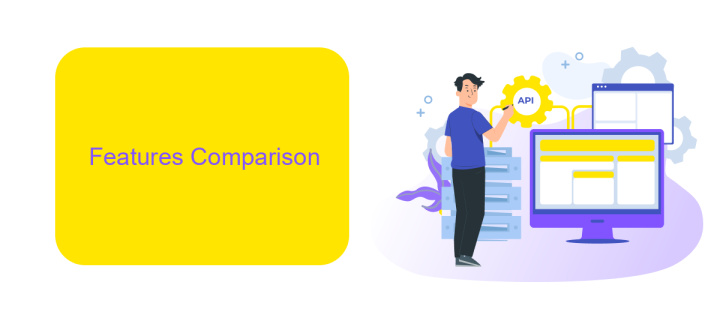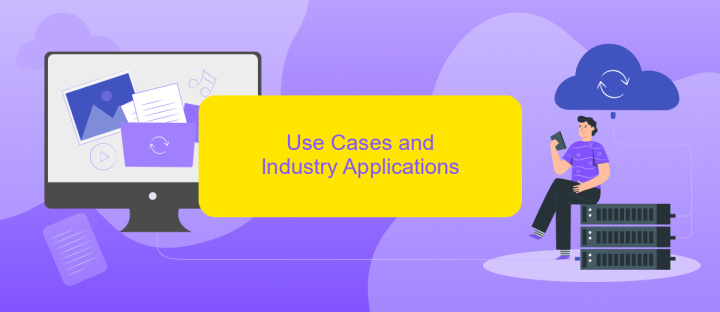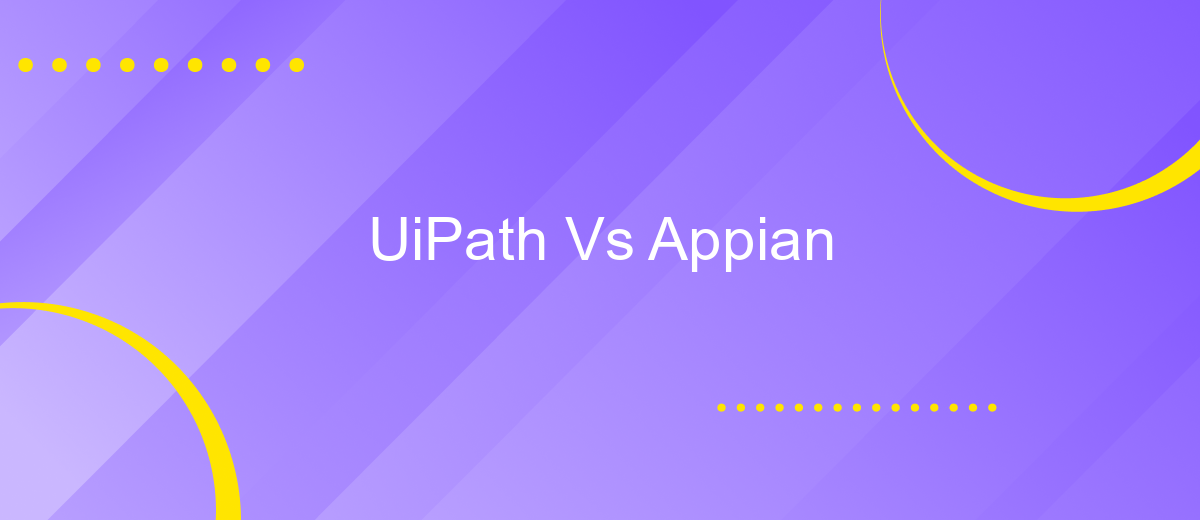UiPath Vs Appian
In the rapidly evolving landscape of automation, UiPath and Appian stand out as two leading platforms, each offering unique strengths and capabilities. While UiPath excels in robotic process automation (RPA), Appian shines in business process management (BPM) and low-code development. This article delves into a comparative analysis of UiPath and Appian, helping you determine which platform best suits your organizational needs.
Introduction
In today's rapidly evolving technological landscape, businesses are constantly seeking ways to optimize their operations and enhance productivity. Two prominent platforms that have emerged as leaders in this domain are UiPath and Appian. Both offer unique features and capabilities, making them suitable for different business needs and scenarios.
- UiPath focuses on Robotic Process Automation (RPA), enabling organizations to automate repetitive tasks and streamline workflows.
- Appian specializes in low-code automation, allowing businesses to build custom applications with minimal coding effort.
- Both platforms offer integration capabilities with various third-party services, enhancing their flexibility and utility.
Choosing between UiPath and Appian can be challenging, as each platform has its strengths and weaknesses. Factors such as the complexity of tasks, integration needs, and specific business requirements play a crucial role in this decision. For instance, services like ApiX-Drive can facilitate seamless integrations, making it easier to connect these platforms with other tools and systems. In this article, we will delve deeper into the features, benefits, and use cases of UiPath and Appian to help you make an informed choice.
Features Comparison

UiPath and Appian both offer robust automation solutions, but they cater to different needs within the enterprise. UiPath excels in robotic process automation (RPA) with its user-friendly interface, extensive library of pre-built activities, and strong capabilities in screen scraping, data extraction, and workflow automation. UiPath's integration with various enterprise applications is seamless, and it offers a powerful orchestrator for managing and monitoring bots. For businesses looking to automate repetitive tasks and processes, UiPath provides a comprehensive and scalable solution.
Appian, on the other hand, is a leader in low-code application development and business process management (BPM). It allows users to design, execute, and optimize complex workflows with minimal coding. Appian's strength lies in its ability to integrate with various systems and data sources, providing a unified platform for enterprise applications. Tools like ApiX-Drive can further enhance Appian's integration capabilities by simplifying the connection between different services and automating data transfer. For organizations aiming to streamline their business processes and develop custom applications quickly, Appian offers a versatile and powerful platform.
Use Cases and Industry Applications

UiPath and Appian are powerful tools used across various industries to automate and optimize processes. UiPath, a leading Robotic Process Automation (RPA) platform, excels in automating repetitive tasks and streamlining workflows, making it ideal for sectors like finance, healthcare, and manufacturing. Appian, on the other hand, is renowned for its low-code automation capabilities, enabling rapid application development and process management, which is highly beneficial for industries such as banking, insurance, and government.
- Finance: UiPath automates data entry, reconciliation, and reporting, while Appian helps in developing compliance and risk management applications.
- Healthcare: UiPath streamlines patient data management and billing processes, whereas Appian aids in creating patient engagement platforms and regulatory compliance solutions.
- Manufacturing: UiPath enhances supply chain automation and inventory management, while Appian supports in building custom applications for quality control and production monitoring.
Both platforms can be integrated with other systems and services to further enhance their functionality. For instance, ApiX-Drive can facilitate seamless integration between UiPath or Appian and various third-party applications, ensuring smooth data flow and process synchronization. This makes it easier for businesses to adopt and scale their automation efforts across different departments.
Pricing and Licensing

When it comes to pricing and licensing, UiPath and Appian offer distinct models tailored to different business needs. UiPath primarily follows a subscription-based model, with pricing tiers based on the number of robots and the complexity of automation tasks. This allows businesses to scale their automation efforts incrementally.
Appian, on the other hand, employs a user-based licensing model. Pricing is determined by the number of users and the specific features required, offering flexibility for businesses of varying sizes. This model is particularly advantageous for organizations that need to deploy applications across numerous users.
- UiPath: Subscription-based, scalable pricing
- Appian: User-based licensing, feature-dependent pricing
Both platforms also provide options for enterprise-level agreements, which can be customized to fit the unique needs of large organizations. For businesses looking to streamline integrations, services like ApiX-Drive can be invaluable, offering seamless connectivity between UiPath, Appian, and other tools, ensuring a smooth and efficient workflow.
Conclusion
In conclusion, both UiPath and Appian offer robust solutions for automating business processes, each with its unique strengths. UiPath excels in robotic process automation (RPA) with its user-friendly interface and extensive integration capabilities, making it ideal for automating repetitive tasks. Appian, on the other hand, shines in its ability to manage complex workflows and case management, offering a comprehensive low-code platform that supports rapid application development.
Choosing between UiPath and Appian depends largely on your specific business needs. If your primary goal is to streamline repetitive tasks through RPA, UiPath is the optimal choice. However, if you require a more holistic approach to business process management with the flexibility to build custom applications, Appian may be more suitable. Additionally, integrating these platforms with other systems can be simplified using services like ApiX-Drive, which offers seamless integration solutions to enhance your automation capabilities. Ultimately, the right choice will depend on your organization's unique requirements and strategic objectives.
FAQ
What are the main differences between UiPath and Appian?
Can UiPath and Appian be used together?
Which platform is better for non-technical users?
Can both platforms integrate with other software systems?
What kind of support is available for implementing automation solutions with these platforms?
Do you want to achieve your goals in business, career and life faster and better? Do it with ApiX-Drive – a tool that will remove a significant part of the routine from workflows and free up additional time to achieve your goals. Test the capabilities of Apix-Drive for free – see for yourself the effectiveness of the tool.

